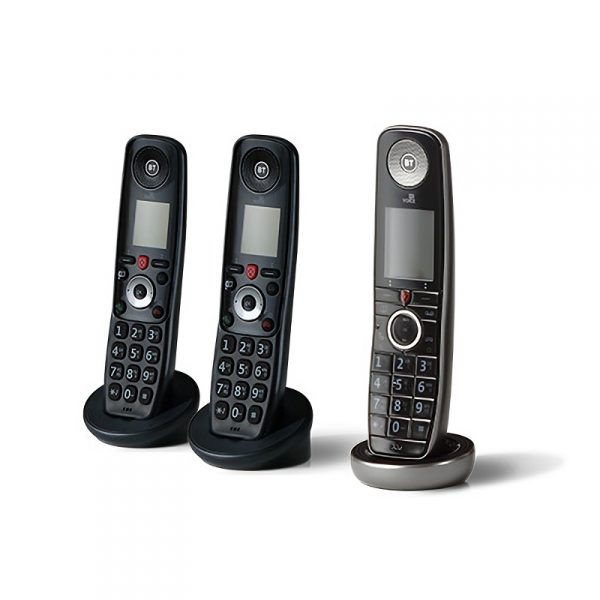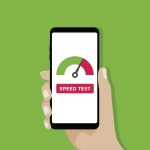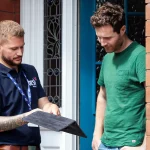ISP BT Change Digital Voice Calling for Local UK Numbers

Broadband ISP BT appears to have begun informing customers about a “small” forthcoming change to their new Voice-over-Internet-Protocol (VoIP) style ‘Digital Voice’ service (often supplied alongside FTTP or SOGEA based hybrid fibre packages), which will change how you dial when calling a local number.
The change means that, from 11th December 2020, customers on Digital Voice will “need to dial the full national number, including the dialling code, whenever you call any local numbers.” If you don’t do this then BT’s email informs that “you’ll hear a message asking you to dial the full national number.”
BT’s email (credits to one of our readers, Sunil, for sharing) states that this change will “help the whole country” get ready for the switch to digital phone lines (i.e. voice calls over broadband / IP). The message explains: “There’s already a huge demand for more phone numbers, something that’s only going to grow as we become ever more connected. By freeing up numbers now, we’re helping everyone get ready for the exciting new world of digital phone services.”
Advertisement
We note that many VoIP or internet phone providers let you pose as if you’re making a local call, and can therefore follow local dialling practices, except in parts of the UK where it is now a requirement to dial the area code too. Otherwise, we did ask BT to comment on this but their response largely repeats the email’s wording.
A BT Spokesperson said:
“From 11 December 2020, BT Digital Voice customers will need to dial the full national number, including the dialling code when making local calls. We’ve seen a huge demand for more phone numbers, a trend that’s only going to grow. By freeing up numbers now, we’re helping everyone get ready for the exciting new world of digital phone services.”
End.
Mark is a professional technology writer, IT consultant and computer engineer from Dorset (England), he also founded ISPreview in 1999 and enjoys analysing the latest telecoms and broadband developments. Find me on X (Twitter), Mastodon, Facebook, BlueSky, Threads.net and Linkedin.
« Eutelsat’s New 75Gbps KONNECT Broadband Satellite Goes Live






















































Exciting new world?
We have come a long way from Whitehall 1212 and I see the benefit of simplification now of not having to interpret 2 to 8 (in a world of number porting, VoIP and full mobile numbers) but why dress it up as something else. The theoretical increase in number ranges is a long way off. This is about eliminating unnecessary processing and capacity of the PSTN replacement.
Also removing complexity in linked numbering areas which may be at different phases of FTTP deployment and the impact on existing PSTN.
This simplifies number portability significantly. Will be interesting to see if the other main UK suppliers do something similar…
Things have come a long way since Strowger. I miss the the blip of 2280 Hz from an AC9 relay set on a trunk call.
This isn’t about simplification, as it is trivial to have the VoIP device or further up insert the local dialling code.
With VoIP of course area codes don’t mean anything to the system and are not needed to be local to anywhere.
So this is partly education now and getting people used to always using a dialling code because later increasing the telephone numbers available means one town or area could end up with two or more different area codes, so you can’t assume a particular area code because someone calls a “local” number without one. Also as time goes on and people move about taking their numbers with them on VoIP, area codes are no longer that and to call next door might mean using the area code for Bournemouth when you are both next door to each other in Cheltenham, this gets people used to the idea of always dialling a full number even if the person is local to them.
I suspect in a few years time new numbers given out for use on VoIP will just come with some new specific to VoIP dialling code regardless of the PTSN local area code that most people still have.
There’s no technical reason why areas running out of numbers can’t be allocated a new shorter code allowing longer local numbers enabling local dialling to continue – about half of the 02 number range has yet to be allocated. The argument that calls to the old-style full numbers would fail is nonsense as they could be automatically handled by number translation for years if necessary.
What will they do next, insist we include the country code as well?
We cope with dialling the full number to and from mobiles.
@Op – example please.
Back when local rate calls were a thing, you could make local rate calls to certain neighbouring area codes. I don’t buy this as an excuse.
I understand the reasons, but it is still a dialling code, so why not have it so if you dial a short “local” number it automatically adds your “area” code. I fail to see why local calls can’t just be considered short dialling and kept.
@Optimist “There’s no technical reason why areas running out of numbers can’t be allocated a new shorter code allowing longer local numbers enabling local dialling to continue”
But then that means that whole area has a telephone number change and need to update everywhere they print or publish their phone number. Why go to all that trouble?
I’ve not personally dialled a local number without a code for years, either the mobile is dialling from my phone book where I have all numbers entered with codes even if local as that is required with mobiles, or I just dial in the full number as that is how mostly I would see it, i.e. a local firm would still print their number with area code and I never omit it if dialling from a landline that is local, it just doesn’t save much time and doesn’t occur to me. As for requiring +44, looking at my Google Contacts page on the web all numbers are already converted to +44… by Google! Some numbers I have actually entered in as +44, guess I’m a step ahead.
I suspect for younger people they don’t even know they can dial a local number without the code on a landline, and this change will affect elderly people more so.
@Phil In answer to your point I do not it would be a problem in practice. Under my proposal the old numbers entered in full would still work, possibly for years (unless Ofcom want to re-use the code), so only calls likely to fail would be those made locally, omitting the area code, where callers would already be aware that local numbers had been lengthened by prepending an additional digit, e.g. 2.
New lines would get local numbers starting 3,4 etc. = these would never have existed under the old area code.
The advantage of all numbers in the same area having the same area code would outweigh the disadvantages IMHO. For example it is easier to give the pub my the last six or seven digits, not all eleven which would be required otherwise.
To those who think that we should just use mobile, please be aware that reception is pretty flaky in some parts of the country which is a good reason for keeping landlines.
Would suggest anyone who doesn’t want to manually dial the area code buys something like a Gigaset N300IP as its configuration allows you to config it to auto dial your area code when you dial local numbers.
@Simples the issue is that isn’t going to work in the longer term when numbers get issued with random area codes to enable enough VoIP new numbers or people move around the UK and keep their old geographical numbers on VoIP. It can mean two people in the same area have the same 6 digit number, the only way to make them unique is to add the dialling code. So the concept of a local dialling code goes, and needs to go is the habit of just dialling the 6 digit number because your calling your neighbour a few doors down or someone in the same town.
So BT enforcing the whole number to be dialled is more education at this point, and the hack of getting a VoIP phone to pre-fix a dialling code when it only sees 6 digits will be frowned upon.
@simples – that will not work because under the new system there will be at least two area codes to choose from.
@Optimist
@Phil
My suggestion will still work for those numbers connected to your existing local area code, If a second local area code is added then ONLY those numbers need the full number to be dialled. Most people do that already with neighbouring area codes so the new local area code can be treated in the same way.
@Simples – your idea is fine if there is just one area code. But OFCOM want to inflict two or more area codes for the same area on us.
Not an issue.
My PSTN area has had to use the dialling code for all local numbers for a few years now.
You get used to it quickly.
A bit like the back pass rule in football. After a few errors, you remember.
@occasionally factual: “After a few errors, you remember.” So, give the telcos more revenue from misdialled calls. A great idea – not!
@Optimist – dialling the partial number after a change does not result in telco revenue.
@The Facts – so if you misdial and get through to a complete stranger you don’t get charged? I never knew that!
No. If you don’t dial the area code then the call fails.
You have to use the area code to get a valid call.
Zero revenue to the telecos for any failure to add the area code.
@occasionally factual – We are going round in circles. Having to enter 11 digits instead of 6 (which I do now) or 7 or 8 (which I used to do years ago) for a local call is more likely to result in a wrong number, especially there will be several area codes for the same area, and misdialling could result in calling a number hundreds of miles away instead of round the corner.
“Going round in circles”
Well in the 6 years we have had to use full number dialling here, I’ve made ZERO wrong number calls.
It really is a non issue.
Anyway I’ve said my piece as some one who lives this daily.
I welcome you to the future which is actually the past for me and a few million other people.
Where does this idea of several area codes for the same area come from? Portsmouth and Southampton had it sorted.
@The Facts –
1. Several codes for one area:
See https://www.area-codes.org.uk/more/areas-without-local-dialling.php
“After these numbers are used up, it is likely the area will be given a second batch of numbers beginning with a different area code. This means some numbers will begin with the area’s original code, while others may begin with completely different digits. This situation does not exist anywhere else in the UK as yet, although it is common in other countries.”
2. Portsmouth and Southampton: The area code is not compulsory for local calls.
Portsmouth and Southampton had it sorted.
If 2 codes for the same area were to occur, although unlikely, then full number dialling would be necessary.
Let’s see if this means that when every range reverts to “national dialling only” if Ofcom stop charging their number tax of 10p per number in high demand areas or if they’ll just roll out to them all…
I don’t think this has anything to do with introducing additional area codes, I think it has more to do with new area codes being non-geographic in the future (like mobiles) and ultimately local call rates will go and call rates will rise.
Do local call rates still exist?